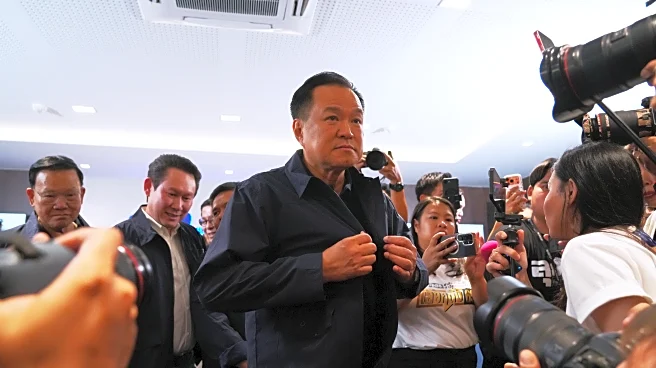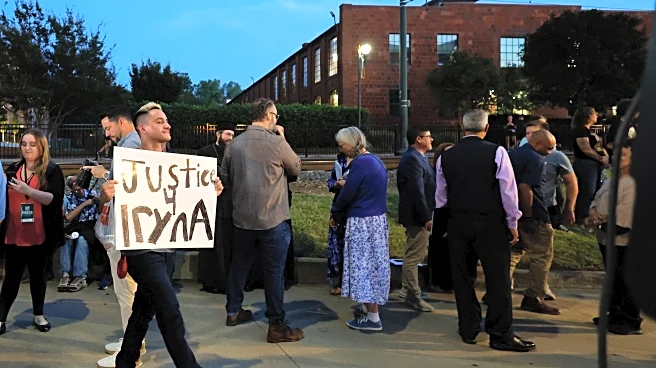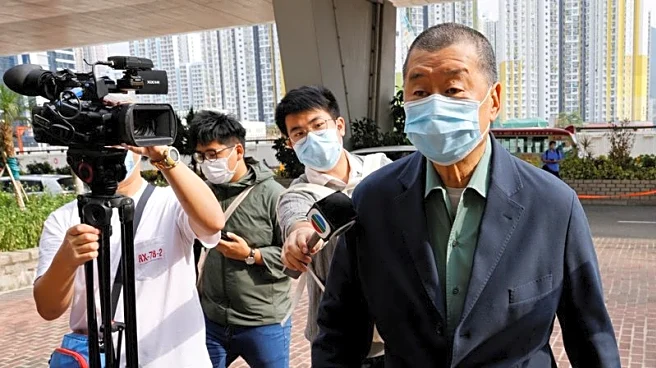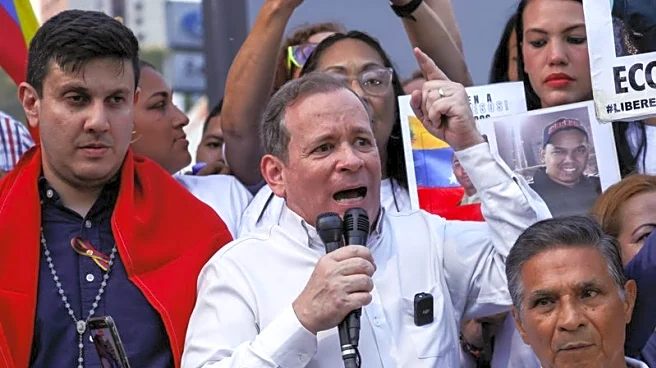What is the story about?
What's Happening?
Secretary of Defense Pete Hegseth has dismissed Lt. Gen. Jeffrey Kruse, the director of the Defense Intelligence Agency (DIA), citing a 'loss of confidence.' This move is part of a broader purge of senior military and intelligence officials under the Trump administration. The dismissal follows a preliminary DIA assessment of military strikes on Iran's nuclear sites, which contradicted statements by Hegseth and President Trump regarding the effectiveness of the strikes. The firing is the latest in a series of high-profile removals, including other senior military officers and intelligence agency heads, as the administration reshapes national security leadership.
Why It's Important?
The removal of Lt. Gen. Kruse highlights ongoing tensions within the U.S. national security apparatus, as the Trump administration continues to overhaul its leadership. These changes could impact the effectiveness and stability of intelligence operations, potentially affecting U.S. strategic capabilities and international relations. The dismissal of experienced officials raises concerns about the politicization of military and intelligence roles, which are traditionally apolitical. The broader implications of these actions may influence the U.S.'s ability to respond to global threats and maintain its security posture.
What's Next?
The shakeup in national security leadership may lead to further changes within the Pentagon and intelligence agencies. The administration's approach to national security could face increased scrutiny from lawmakers and defense experts, potentially prompting debates on the balance between political influence and operational integrity. The impact of these leadership changes on U.S. military strategy and intelligence gathering may become a focal point in upcoming policy discussions and congressional hearings.
Beyond the Headlines
The dismissal of Lt. Gen. Kruse and other senior officials reflects broader challenges in maintaining a stable and effective national security framework. The potential politicization of military and intelligence roles raises ethical and operational concerns, as these positions are critical to safeguarding national interests. The ongoing reshuffle may also affect morale and trust within the defense community, influencing the U.S.'s ability to attract and retain top talent in these fields.
















